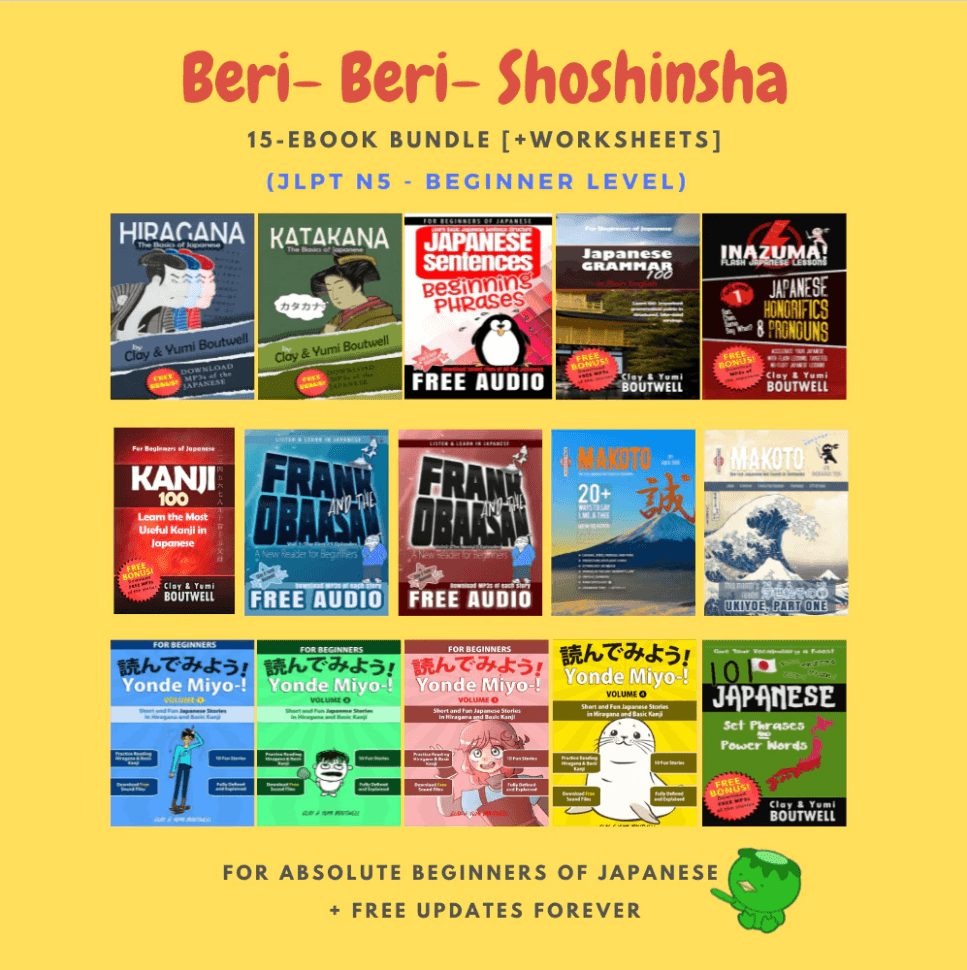An oyaji gyagu means a “boring pun” or “an old person’s (flat) joke.”
おやじ means “one’s father” or “an old man.” ギャグ comes from “gag” and while the English word can indicate an act (e.g. a practical joke), ギャグ in Japanese is usually verbal speech.
Here are a few classic and corny おやじギャグ. Use at your own risk!
そうだ!ソーダを飲もう
“I got it! I’ll drink soda.”
Okay, none of these work in English. The word play involves そうだ (casual of そうです) and ソーダ which means “soda.”
そうだ is used when remembering something or deciding on something. “That’s right!”
スキーが好きです。
“I like skiing.”
Another innocent sounding English translation becomes an awful sounding pun in Japanese. 好き, to like, sounds like スキー, to ski.
カレーは、辛れ~!
“The curry is spicy!”
Curry is カレー and 辛~ is a slang form of 辛い meaning spicy hot.
スイカ安いか?
“Is the watermelon cheap?”
スイカ means “watermelon.” 安い means “cheap” or “inexpensive.” か is the question ender: suika yasui ka.
漢字のない国はカナダ。
“A country with no kanji, Canada.”
The pun comes from the Japanese word for “Canada” which is カナダ. This could also be かな (kana, hiragana and katakana) + だ (plain form copula). The country without kanji is the country with only kana.
イルカはいるか?
“Are there dolphins?”
イルカ is a dolphin. いるか is asking if (dolphins) exist. Useful for your next beach trip.
鹿しかない。
“There’s nothing here but deer.”
鹿 means deer and しかない means “nothing but (deer).” It kind of works in English as a rhyme.
アリが父さん、 ハエが母さん
“An ant is my father; a fly is my mother.”
アリが父さん sounds like “thank you” but means “an ant is (my) father.” Use a fly to represent the mother. This is from a Crayon Shinchan manga.
梅は旨めぇ 。
“The plum is delicious.”
Plum in Japanese is “うめ.” “うめ” is also slang for うまい which means delicious.
猫が寝込んだ。
“The cat slept.”
寝ね込こむ means to “stay in bed” from exhaustion or sickness.
真っ白な犬がいました、尾も白い 。
“There was a totally white dog. His tail was also white.”
「尾も白い」 (tail is also white) sounds like おもしろい which means “interesting” or “amusing.”
和食きらい? わーショック!
“You don’t like Japanese style food? Shock!”
“わしょく” means Japanese food. “わ” is an exclamation like “wow.” ショック is “shock.”







